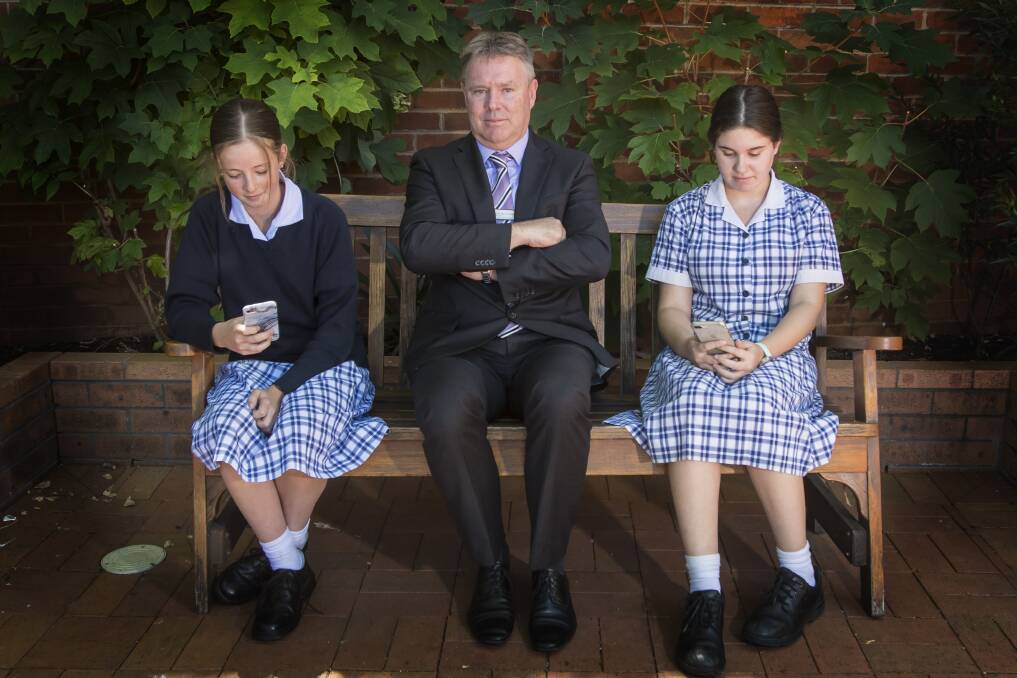
At least two schools in Tamworth have banned the use of smart phones during school hours, and it look like the NSW government might be about to make the brave decision for all public schools to follow suit.
Subscribe now for unlimited access.
$0/
(min cost $0)
or signup to continue reading
On Thursday the state announced it would be conducting an Australia first review into the use of smart phones at school, and the link between them and cyber safety and online bullying.
A recent study revealed that one in four children under the age of 12 had been stalked, harassed or abused online, while the prevalence of anti-social digital behaviour at high schools was also alarming.
Locally McCarthy and Calrossy have already put bans in place, with Calrossy principal David Smith saying that while bullying and security played a minor role it was more about making students relate to other students and teachers, and fully engage in the classrooms.
Read more:
On Thursday education minister Rob Stokes announced that the review will be conducted by child psychologist Michael Carr-Gregg, and will look at restrictions on social media and phone use based on age, online safety and the prevalence of cyber-bullying cases.
“While smartphones connect us to the world in ways never imagined just a decade ago, they raise issues that previous generations have not had to deal with,” Mr Stokes said.
“In the classroom and in the playground, smartphones provide opportunities for students and parents to stay connected, but can also create other problems.
“Every school I visit has anecdotal examples about the perils or positives surrounding the use of smartphones and other devices in schools.”
One idea that has already come to the surface is the use of a “dumbphone” policy, which would only allow the old style of phones that are only capable of sending messages and making and receiving calls.
"These are phones that don't have a camera, that don't access the internet," Dr Carr-Gregg said.
"But they still afford young people the opportunity to communicate with their parents which I think is a legitimate role."
The psychologist has already warned against a blanket ban, saying that there is a place for smartphones to be used at schools as an important learning and teaching aid, instead calling for “a more nuanced response.”
"You can get instant answers, you do get wider access to information, you can get instant video access from using mobile phones, but it's got to be teacher directed."

